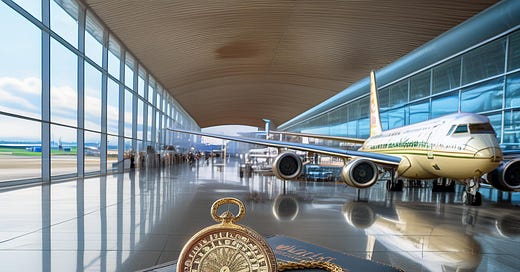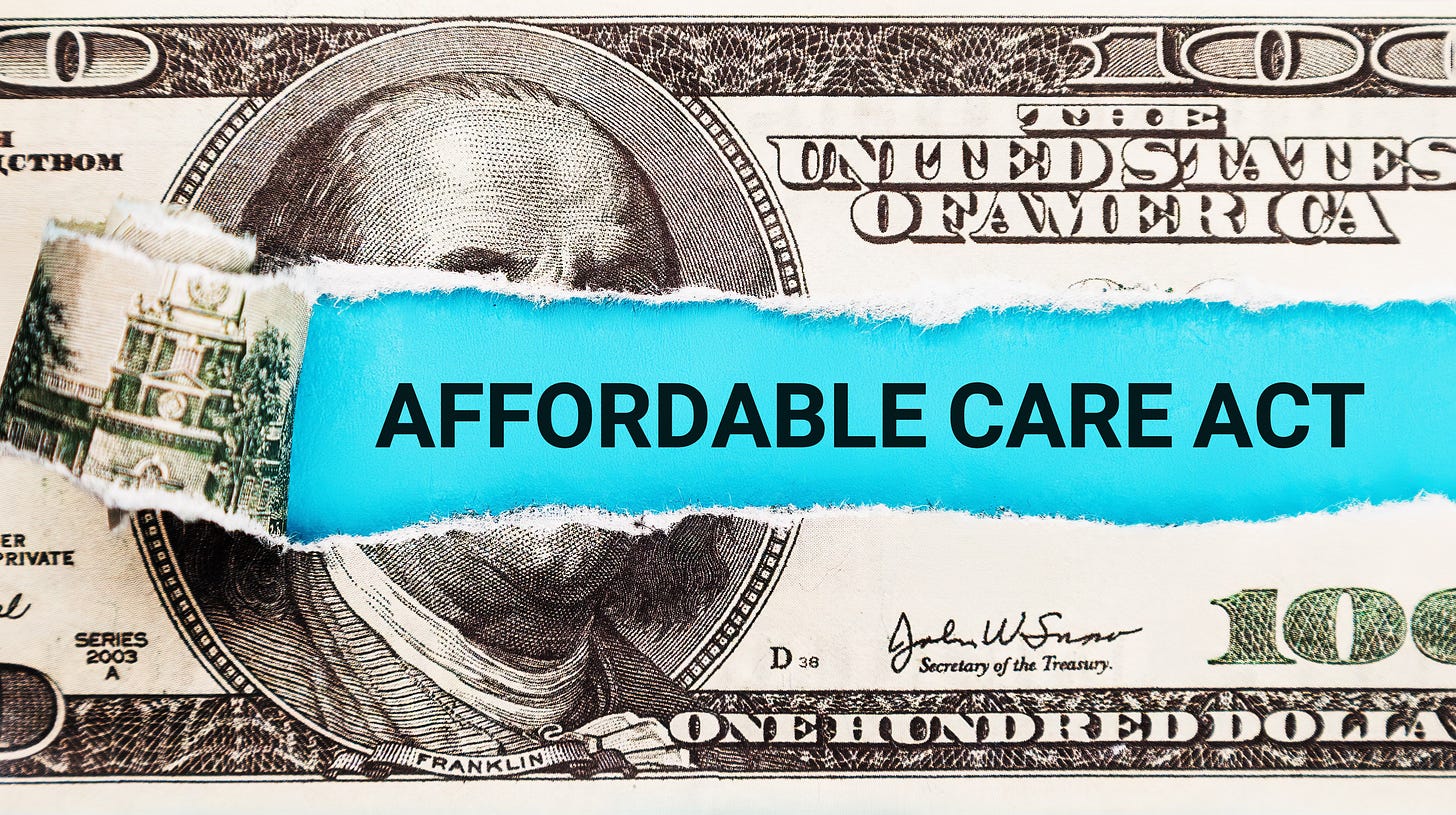Why Americans Are Leaving Some Countries: The Unspoken Struggles of Expats; How Older Adults Can Prepare for Changes in the U.S. Healthcare System Under the Trump
Over the years, living abroad has been a dream for many Americans seeking adventure, cultural immersion, and a change of pace. Whether for retirement, career opportunities, or a desire to explore new landscapes, millions of U.S. citizens have relocated to countries across the globe. Yet, recent anecdotal evidence suggests that an increasing number of Americans are choosing to leave these once-ideal destinations, faced with challenges they hadn’t anticipated.
From bureaucratic hurdles to rising costs of living, expats are encountering a range of frustrations that are leading them to reconsider their overseas dreams. Here, we explore the countries where this phenomenon is most pronounced, examining why Americans initially chose these locations, the problems they are encountering, and why some are deciding it’s time to return home.
1. Mexico: Proximity and Perils
Mexico has long been a top destination for Americans due to its proximity to the U.S., affordable living, and warm climate. Cities like Puerto Vallarta, Mexico City, and Mérida have become hubs for expats seeking a slower pace of life, cultural immersion, and financial relief. However, Mexico’s rising crime rates, political instability, and bureaucratic red tape have driven many expats to reconsider their choices.
Frustrations:
Crime and Safety: Some areas, particularly along the northern border and in larger cities, are facing rising violence due to drug cartels and other criminal activities. Expats report feeling increasingly unsafe, especially when navigating everyday life or traveling to different parts of the country.
Bureaucracy and Legal Complexities: From visa issues to residency permits, dealing with Mexican bureaucracy can be a slow and confusing process. Many expats face long waits and inconsistent regulations when handling official matters, which leads to frustration and, at times, a sense of helplessness.
Healthcare Gaps: While Mexico is known for offering affordable healthcare, some expats in rural areas struggle to find adequate care. Quality medical services tend to be concentrated in larger cities, making healthcare a challenge for those living in more remote locations.
Why Expats Chose Mexico:
Americans were drawn to Mexico by the promise of an affordable lifestyle, a warm climate, and a vibrant cultural scene. The country’s proximity to the U.S. made it an easy and accessible destination for retirees, digital nomads, and people seeking a lower cost of living without sacrificing cultural or social experiences.
2. Spain: A Dream Turned Expensive
Spain has long been a favorite among American expats, known for its rich history, world-class cuisine, and Mediterranean lifestyle. Cities like Barcelona and Madrid, as well as smaller towns in Andalusia, have drawn Americans in search of both adventure and tranquility. Yet, as Spain’s popularity grows, so do the challenges that come with it.
Frustrations:
High Cost of Living: While Spain has traditionally been seen as an affordable destination, the cost of living in cities like Madrid and Barcelona has skyrocketed in recent years. Rent and general living expenses have surged, making it difficult for expats to maintain a budget-friendly lifestyle.
Bureaucratic Headaches: Spain’s bureaucracy is notorious for being slow and inefficient. Many expats face long waits and confusing processes when applying for residency, work permits, or even dealing with healthcare registration. The slow pace of Spanish bureaucracy often leads to delays and confusion.
Language and Social Integration: While many Spanish people speak English, especially in tourist-heavy areas, the language barrier remains a major challenge for expats who are not fluent in Spanish. This limits social opportunities and makes daily tasks, such as dealing with utilities or government paperwork, difficult.
Why Expats Chose Spain:
Many Americans were drawn to Spain’s lifestyle, the warmth of its people, and its cultural vibrancy. Affordable healthcare, a relaxed way of life, and beautiful Mediterranean views also made it an appealing destination. Additionally, the allure of living in a country with a rich history and diverse landscapes was a major pull factor for those seeking adventure.
3. Italy: La Dolce Vita with Complications
Italy, with its stunning landscapes, food culture, and historical significance, has always been a dream destination for many American expats. From the romantic canals of Venice to the vineyards of Tuscany, Italy offers an idyllic lifestyle. But the practical realities of living in Italy have proven more challenging than many expats expected.
Frustrations:
Bureaucratic Maze: Italian bureaucracy is infamous for its complexity and inefficiency. Expats often find themselves dealing with slow processing times for residency permits, visas, and other official documentation. This bureaucratic quagmire can make the dream of living in Italy feel more like a never-ending series of hurdles.
Economic Struggles and High Costs: Major cities like Rome and Milan can be prohibitively expensive, especially for housing. The country’s struggling economy has meant that many expats face financial uncertainty, especially those who are not well-established in the job market.
Social and Language Barriers: While many Italians speak English, the language barrier remains a significant challenge for expats. Italians tend to prefer speaking in their native language, and expats without solid Italian skills often struggle to integrate socially or navigate day-to-day tasks. Additionally, in smaller towns, English is less commonly spoken, making integration even harder.
Why Expats Chose Italy:
The allure of Italy’s lifestyle—rich in history, art, and food—was a significant pull for many Americans. The picturesque landscapes, the relaxed pace of life, and the opportunity to embrace a different way of living made Italy an attractive option. For retirees and those seeking a lifestyle change, Italy’s blend of culture, food, and warm climate proved irresistible.
4. South Africa: A Beautiful Land of Struggles
South Africa has long attracted Americans with its unique combination of urban sophistication and natural beauty. Expats were drawn to its dynamic cities like Cape Town and Johannesburg, as well as the stunning wildlife and outdoor experiences the country offers. However, South Africa’s safety concerns, economic instability, and political uncertainty have left many expats questioning their decision to stay.
Frustrations:
Safety and Crime Issues: South Africa struggles with high crime rates, particularly in urban areas. Expats frequently report concerns about their safety, especially regarding violent crime and theft. Many expats find themselves living in gated communities with extensive security measures, making them feel increasingly isolated.
Economic Instability and Job Scarcity: The country faces high unemployment rates, economic instability, and inflation. Expats, particularly those who relocate for work, often struggle to find job opportunities, and wages are lower compared to many Western countries.
Political and Social Turmoil: South Africa's political landscape is unstable, with ongoing challenges related to corruption, inequality, and tensions between different racial and social groups. Many expats find themselves uneasy about the country’s future.
Why Expats Chose South Africa:
Many were attracted to South Africa’s remarkable natural beauty, diverse landscapes, and relatively low cost of living compared to other Western countries. The opportunity to live in a country that is undergoing rapid development and transformation also appealed to those interested in making a direct impact on Africa’s future.
5. Ghana: Reconnecting with Roots, Facing Realities
Ghana has become a major destination for African Americans, especially since the government’s "Year of Return" initiative in 2019, which encouraged diasporans to visit and reconnect with their African roots. The country’s rich history, cultural significance, and growing economy have made it a popular choice for those seeking a deeper connection to Africa. However, for many expats, life in Ghana hasn’t been as seamless as they imagined.
Frustrations:
Infrastructure Issues: Despite progress in infrastructure, Ghana still struggles with power outages, unreliable internet, and poor roads in some areas. Expats accustomed to the conveniences of Western cities may find these issues particularly challenging.
Bureaucratic Delays: Expats often find the process of obtaining residency permits, visas, and even setting up utilities to be cumbersome and slow. The inefficiency of government processes can be frustrating for those looking to establish a stable life.
Healthcare Gaps: While healthcare in urban centers like Accra is generally adequate, rural areas lack quality medical facilities. Expats who live outside the major cities often face challenges accessing reliable healthcare services.
Why Expats Chose Ghana:
The country’s deep historical connection to the African diaspora, coupled with its economic growth, made Ghana an attractive destination. The government’s outreach to African Americans, particularly with initiatives to welcome the diaspora back to Africa, resonated with many looking to explore their heritage and contribute to Africa’s growth.
6. Portugal: Rising Costs and Bureaucratic Hurdles
Portugal has become a hotspot for American expats, particularly those seeking a blend of rich cultural heritage, stunning landscapes, and affordable living. The country’s reputation for being an expat-friendly destination, with its relaxed lifestyle and warm Mediterranean climate, has attracted many. However, with the increasing popularity of Portugal as a destination, many expats are now experiencing issues that were not immediately apparent.
Frustrations:
Rising Cost of Living: While Portugal used to be considered a relatively affordable European destination, cities like Lisbon and Porto have seen significant price increases in housing, utilities, and groceries. This has made it more difficult for expats to maintain a cost-effective lifestyle.
Bureaucratic Delays: Portugal’s immigration and residency processes can be slow and complicated. Expats often face long waits for visa approval, residency permits, and even necessary paperwork for starting businesses or obtaining healthcare coverage.
Healthcare Accessibility: Although Portugal offers universal healthcare, expats may encounter long waiting times for treatments and limited availability of English-speaking doctors outside major cities. The affordability of healthcare has also begun to diminish as demand grows.
Why Expats Chose Portugal:
Portugal's charm lies in its rich cultural heritage, picturesque landscapes, and relatively low cost of living compared to other Western European nations. Expats were drawn by the promise of a warm, Mediterranean lifestyle, robust public healthcare, and a slower pace of life. The country’s affordability, especially in comparison to neighboring Spain and other parts of Europe, was a major attraction.
7. Thailand: Visa Issues and Social Integration Challenges
Thailand has long been a favorite destination for American retirees and digital nomads due to its affordable cost of living, beautiful beaches, and vibrant culture. However, recent visa restrictions and social integration difficulties have led some expats to reconsider their choice of Thailand as a permanent home.
Frustrations:
Visa Restrictions: Thailand has become increasingly strict with its visa policies, making it harder for expats to secure long-term stays. Changes in visa regulations, especially for retirees and workers, have left many scrambling for new options.
Healthcare Cost Increases: While healthcare in Thailand has traditionally been affordable, the rising cost of medical services, particularly private care in major cities, has made it more difficult for expats to maintain the same level of healthcare they initially enjoyed.
Cultural and Social Isolation: Expats in Thailand often struggle to integrate socially, especially if they do not speak Thai. The language barrier can create a sense of isolation, and many expats find it difficult to navigate Thai bureaucracy or build long-term social connections.
Why Expats Chose Thailand:
Thailand’s allure lies in its exotic charm, affordable living, and the welcoming attitude of its people. Many American retirees were drawn to Thailand's low cost of living, particularly in comparison to the U.S., and its beautiful natural surroundings, including beaches, mountains, and vibrant cities like Chiang Mai and Bangkok. Additionally, its well-established expat communities made it easier for new arrivals to feel at home.
8. Panama: Rising Costs and Expanding Expat Communities
Panama has been a popular destination for American retirees and expats due to its warm climate, use of the U.S. dollar, and tax incentives. Known for its political stability and growing economy, Panama attracted many looking for a more affordable lifestyle while maintaining proximity to the U.S. However, with the increasing influx of expats, challenges related to the cost of living and competition for housing have emerged.
Frustrations:
Rising Costs: The increasing popularity of Panama, particularly Panama City, has led to a rise in housing costs, rent, and overall living expenses. Expats who initially chose Panama for its affordable lifestyle are now finding it more expensive than they anticipated.
Overcrowding in Popular Areas: As more expats move to Panama, areas like Panama City and Boquete have become crowded, leading to higher prices and increased competition for housing and services.
Healthcare Concerns: While Panama is known for its relatively affordable healthcare, the increasing demand for medical services in popular expat areas has led to longer wait times and rising costs, especially for private healthcare options.
Why Expats Chose Panama:
Panama offered a combination of benefits including tax incentives, a low cost of living, and a high standard of living. The country’s use of the U.S. dollar, proximity to the U.S., and growing expat community made it an attractive option for retirees and entrepreneurs. Expats also enjoyed the tropical climate, easy access to both modern amenities and natural beauty, and the robust healthcare options available in the country.
9. France: Costly Living and Bureaucratic Complexity
France has long been one of the most popular European destinations for American expats, attracting those drawn to its rich history, world-class cuisine, and sophisticated lifestyle. Major cities like Paris and Lyon, as well as regions like Provence, have long offered a seductive draw for those seeking cultural enrichment and the charm of French living. However, the challenges associated with living in France are pushing some expats to reconsider their decision.
Frustrations:
High Cost of Living: Paris and other major cities in France have become extremely expensive. Housing costs, in particular, have soared, making it difficult for expats to maintain an affordable lifestyle in the city of lights or other large urban areas.
Bureaucratic Inefficiencies: France is infamous for its bureaucratic red tape. Expats often encounter delays and complications when applying for visas, residency permits, or even attempting to register for basic services like healthcare and utilities. This can create frustration for those unfamiliar with the intricacies of the French administrative system.
Healthcare Access and Costs: While France offers one of the best healthcare systems in the world, expats often face long wait times for treatments and difficulty finding English-speaking healthcare providers in more rural areas. The cost of private health insurance has also risen, making it a financial burden for some.
Why Expats Chose France:
Many Americans were drawn to France for its cultural sophistication, culinary delights, and overall quality of life. Whether it was the romantic allure of Paris or the slower pace of rural life in regions like Provence, expats sought the opportunity to immerse themselves in the famed "joie de vivre." Additionally, France’s public healthcare system and beautiful landscapes were major selling points for those looking for a fulfilling retirement abroad.
Conclusion:
While the dream of living abroad offers many rewards, the challenges faced by expats in Portugal, Thailand, Panama, and France underscore the complexities of life in foreign countries. Rising costs, bureaucratic red tape, and difficulties in integrating socially and culturally can complicate the expat experience, especially for older adults who may have expected a smoother transition. While these countries offer distinct advantages, it’s clear that expat life is not without its struggles. As expats face an ever-changing global landscape, the decision to stay or return home depends on how well they can adapt to these shifting realities.
Trump 2.0 and U.S. Healthcare
With the upcoming transition to a new administration, many older Americans are bracing for potential changes to the U.S. healthcare system. As the Trump Administration promises to overhaul several existing healthcare policies, uncertainty looms regarding access to healthcare services, Medicare, and the regulation of treatments and vaccines. This uncertainty is exacerbated by the prominence of figures like Robert F. Kennedy Jr., a well-known vaccine skeptic, who is likely to have a significant influence on health policies. For older adults, who are more vulnerable to changes in healthcare, proactive steps to safeguard their health and future well-being are critical.
In this article, we’ll explore both short-term and long-term strategies that older Americans can implement to navigate these uncertain times and protect their healthcare needs.
Short-Term Strategies: Staying Informed and Prepared for Immediate Changes
1. Stay Updated on Healthcare Policy Changes
The first step to getting ahead of any potential shifts in healthcare policy is staying informed. Changes could affect everything from vaccine distribution to Medicare coverage, so it’s essential to know what is happening in the legislative landscape.
Subscribe to Trusted News Outlets: Keep track of trusted news sources, including those that specifically focus on healthcare policy. News outlets, government websites (such as Medicare.gov), and advocacy groups for older adults (like AARP) are good places to monitor for updates.
Follow Key Figures: Given the role that figures like Robert F. Kennedy Jr. might play in shaping healthcare policy, keeping track of his public statements, positions, and any roles he might assume within the administration could be critical. Understanding his influence on vaccine policy, for instance, will help you anticipate changes in public health strategy.
2. Review Your Current Healthcare Coverage
Given the potential changes to policies like Medicare, it’s important to review your existing healthcare plans to ensure they still meet your needs in the short term.
Reevaluate Medicare Plans: Many older adults rely on Medicare for health insurance. With potential shifts in healthcare policy, it’s important to review your current Medicare Advantage or Part D plans, especially during open enrollment periods. Ensure your current plan still provides the coverage you need, particularly in light of any expected changes to the coverage of prescriptions or services.
Consider Supplemental Insurance: If you haven’t already, consider purchasing supplemental insurance to fill any gaps in your Medicare coverage. This could help protect you from rising out-of-pocket costs in case of policy changes.
3. Stock Up on Medications and Essential Health Supplies
In uncertain times, it’s a good idea to ensure that you have an adequate supply of essential medications and healthcare supplies. Disruptions in the healthcare system, such as shortages or delays in services, could make it harder to access necessary treatments.
Prescription Medications: Work with your healthcare provider to secure a 60- to 90-day supply of your essential medications. This can protect you from any sudden disruptions in your pharmacy’s ability to provide timely refills.
Over-the-Counter Health Supplies: Make sure to stock up on over-the-counter items like pain relievers, vitamins, and personal care items you may rely on. If the healthcare system experiences delays or shortages, you’ll have what you need on hand.
4. Build a Health Advocate Network
Having a support system that is familiar with your healthcare needs is vital. Whether this involves family members, trusted caregivers, or healthcare professionals, these individuals can help advocate for your needs in times of policy uncertainty.
Find a Healthcare Advocate: Identify someone who can help you navigate the healthcare system. If you’re unable to manage complex medical needs or appointments yourself, a trusted family member or healthcare professional can take charge.
Consult with Healthcare Professionals: Reach out to your doctors or specialists to discuss any anticipated changes to treatments, particularly in areas like preventive care or vaccination schedules. Many healthcare professionals are already preparing for shifts in policy and can provide advice tailored to your specific health needs.
Long-Term Strategies: Preparing for a Shifting Healthcare Landscape
1. Advocate for Medicare and Healthcare Access
One of the most significant concerns for older adults under the Trump Administration, particularly with figures like Robert F. Kennedy Jr. in influential roles, is the future of Medicare and access to essential health services. Healthcare for seniors, especially in terms of preventive care and the funding of necessary services, could be at risk.
Engage in Advocacy Efforts: Stay involved in advocacy organizations that focus on Medicare and senior healthcare. Organizations such as AARP, the Medicare Rights Center, and the National Council on Aging work to protect healthcare rights for older Americans. Joining these groups can help you stay informed and become part of collective efforts to protect Medicare.
Write to Legislators: Advocate for policies that protect healthcare access by writing to your elected representatives. Express your concerns about potential cuts to Medicare, changes to vaccine mandates, and any shifts that might threaten affordable healthcare for seniors.
2. Strengthen Your Health and Wellness Routine
As the future of healthcare becomes more uncertain, personal health management is more important than ever. Maintaining a healthy lifestyle can help reduce your dependency on healthcare services, potentially minimizing the impact of any disruptions in care.
Focus on Prevention: Ensure you are up-to-date on preventive health measures such as regular screenings, check-ups, and immunizations (including the flu and shingles vaccines, which may face changes in availability under new policies). By proactively managing your health, you can reduce the likelihood of needing intensive medical care.
Physical Activity and Diet: Maintaining an active lifestyle and eating a nutritious diet can help prevent chronic conditions such as diabetes, hypertension, and heart disease, which often require long-term treatment. Incorporating exercise into your daily routine is key, whether through walking, yoga, or strength training.
3. Plan for Long-Term Care Needs
With the potential for significant changes in Medicare, long-term care insurance, and Medicaid programs, it’s crucial to start planning for your long-term care needs.
Explore Long-Term Care Insurance Options: Investigate long-term care insurance plans that could cover nursing home or in-home care if you require assistance as you age. These types of policies may provide financial protection if healthcare services become more difficult to access or if Medicare fails to cover long-term care costs.
Consider Aging-in-Place Solutions: Plan ahead for any adjustments you may need to make in your living situation as you age. Many older adults prefer to age in place, meaning they stay in their own homes with the help of caregivers or medical professionals. Consider home modifications, like grab bars or ramps, that will help you live more independently if your mobility declines.
4. Prepare Financially for Healthcare Costs
Healthcare costs are one of the largest concerns for older adults, particularly in an environment where the system might become more fragmented or privatized. As changes to healthcare policy unfold, it’s wise to take proactive steps to ensure your financial security.
Save for Healthcare Expenses: Start or continue to save in a Health Savings Account (HSA) or a dedicated healthcare savings fund. This will help you cover unexpected medical expenses without relying solely on Medicare or private insurance.
Review Your Retirement Plan: Assess how changes in healthcare costs could impact your long-term financial goals. Consider consulting a financial planner to explore ways to account for increased healthcare expenses, whether through investment strategies or adjusting your retirement plans.
5. Address Vaccine Concerns and Health Misinformation
With vaccine skepticism becoming more prominent in political circles, particularly with figures like Robert F. Kennedy Jr. influencing policy, there may be growing uncertainty about vaccine accessibility and mandates.
Educate Yourself on Vaccines: Make sure you are well-informed about vaccine recommendations, especially for older adults. Vaccines play a critical role in preventing serious illnesses like flu, pneumonia, and shingles, which can be particularly dangerous for those over 65. Stay current with the CDC’s guidelines for vaccines, and discuss with your healthcare provider the best vaccination schedule for your health needs.
Trust Medical Professionals Over Misinformation: In an era where misinformation about health and vaccines is widespread, it’s important to rely on trusted medical sources for your health information. Continue to consult your healthcare providers about your health, especially when it comes to immunization and preventative care.
Conclusion: Taking Control in Uncertain Times
As the U.S. healthcare system enters a period of uncertainty under the Trump Administration, older adults must take proactive steps to safeguard their health and well-being. Whether it's staying informed about policy changes, reviewing your healthcare coverage, or planning for long-term care needs, preparation is the key to navigating a shifting landscape. By taking these short- and long-term actions, you can ensure that you remain in control of your healthcare decisions, regardless of what changes may lie ahead. The healthcare landscape may be unpredictable, but your health and security don’t have to be.
Shopping on Amazon? Let the Fit2 Journey Store be your Gateway
Fit2Journey Store (Click on Link)
What We’re Watching
-
What We’re Reading
13 Cheapest Islands to Visit Around the World
US travelers lose millions of suitcases every year. Their contents wind up at a store in Alabama
Cardiorespiratory Fitness Preserves Brain Health As You Age, Study Finds
How healthy plant-based diets enhance strength and function in aging adults














